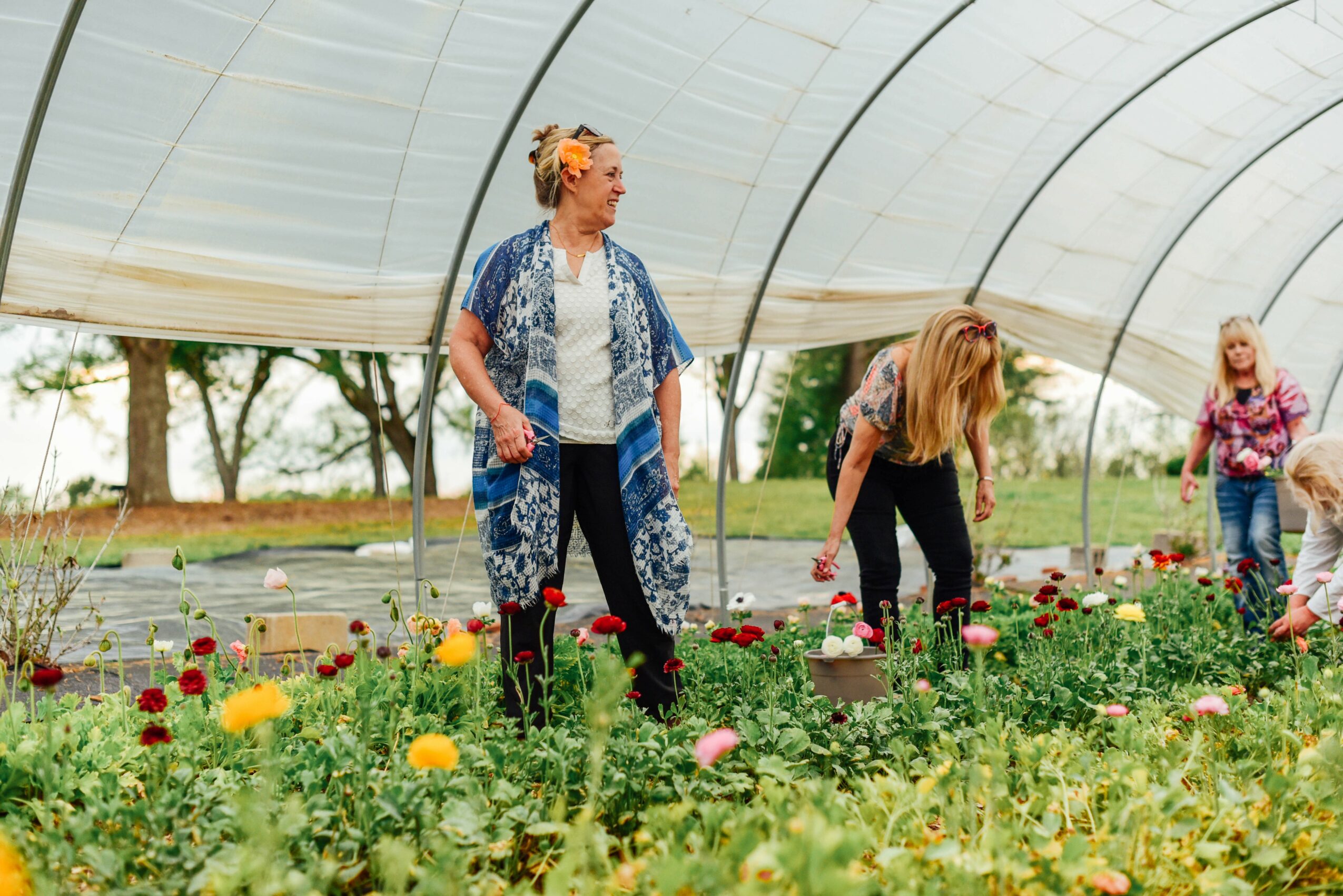

Today we’d like to introduce you to Elijah Ackerman.
Hi Elijah, we appreciate you taking the time to share your story with us today. Where does your story begin?
Our story should be told as the three separate stories of myself (Elijah), my wife (SG), and her mother (Donna) that met into one story in the exact right chapter. SG has always loved tomatoes, so for Christmas of 2018, I gifted her a collection of heirloom tomato seeds to plant in her small garden. That following year, I got into making hot sauce, soft-launched a hot sauce brand called Rabbit Cult hot sauce, and started growing my peppers beside SG’s garden. Around that same time, Donna became deeply interested in floral design and began practicing the art. Our gardens had increased in size each year to accommodate more tomatoes, peppers, and other vegetables, all while Donna had her own flower garden growing at her home. Then, during the Covid pandemic, SG and I found ourselves needing new careers, and it just clicked. Going into winter 2020, I remember looking at SG and asking, “What if we did this for real? What if we started a farm?” We approached Donna intending to have a highly diversified farm, doing both flowers and vegetables, and we have yet to look back. We found it suitable to land a few months later and broke ground the same day we moved into the basement of a fixer-upper farmhouse in April of 2021. Since then, we’ve maintained a “farm-first” mentality, meaning that we are committed to being an authentic working farm first and foremost and trusting that this mindset will bring the right clientele to us for our products and our farm events. We maintain organic and no-till practices, respecting the long-term health of the land we grow on. We have strived to maintain relationships with our friends in the industry. During our first year of farming, I took a job in a local kitchen I admire (GB&D) to understand better how chefs operate and what they like to see from the farms they work with. We also have strived to maintain diversified sales channels, selling not only to restaurants and floral designers but also directly to consumers through CSA programs and farmers’ markets. This has allowed us to double our growing space each year since 2021 and add an event space in 2022 and a U-pick field, which is being doubled going into 2024.
Please talk to us about the challenges and lessons you’ve learned. Looking back, has it been easy or smooth in retrospect?
Overall, I am pulled to the side with gratitude, and we have had a fortunate time starting the farm. With that said, starting a farm can be challenging. Finding land was the first significant hurdle, and land accessibility is a real issue, especially in places experiencing rapid growth like Greenville. When we found a suitable spot, we had to jump on it abruptly, which meant SG. I needed to rush to sell our home and move into the basement of the old farmhouse. At the same time, we worked to fix the upstairs and simultaneously break ground on the farm to get plants in the ground in time for a summer crop while simultaneously working part-time jobs and waiting for the farm to begin earning an income. A summer without AC in an old basement with no days off isn’t ideal, but we were happy to be farming. I sometimes miss that summer, but I am pleased to report that we live happily in the farmhouse with AC and farming full-time. We welcomed our baby Rylan Joyce Kivett to the family on July 20th of this year. This introduced a new challenge of time management and the balance of labor on the farm for SG, who expresses how they both require a lot physically. Farming as a career is full of ongoing challenges – adapting to the wind storms in the Spring by building a hedgerow or covering plants with an extra letter of row cover to protect them from the extra low temperatures during the winters when we experience a polar vortex, or shade cloth for the hot summers, and countless other problems that may or may not be a one time issue, but that is part of the fun of farming.
Can you tell our readers more about what you do and what you think sets you apart from others?
We are a highly diversified organic no-till farm, growing both cut flowers and vegetables for market, wholesale, and CSA, as well as hosting on-farm events such as U-picks, coursed dinners, private date nights, weddings, and more, all while being very close to the heart of our city of Greenville. We are very proud of our approach to farming, maintaining organic standards and using no-till methods, cultivating our grow space by hand to ensure our fields’ long-term health and beauty with attention to what we grow. We take great pride in our relationships with other local small businesses and restaurants that we respect, cooperative events, and farm-to-table dinners.
Are any books, apps, podcasts, or blogs that help you do your best?
A wonderful community of no-till farms provides so much information on their operations via YouTube and established organizations such as the No-Till Growers podcasts and YouTube channels. I’ve read many books, but some highlights that stand out from when we first started are The No-Till Organic Vegetable Farm by Daniel Mays and The Flower Farmer by Lynn Byczynski. I have also taken great inspiration from the books The Third Plate by Dan Barber and Deadhead: The Bindweed Way to Grow Flowers by Jeriann Sabin and Ralph Thurston.
Contact Info:
- Website: www.rabbitcrestfarms.com
- Instagram: rabbitcrestfarms
- Facebook: facebook.com/rabbitcrestfarms







 Image Credits
Image Credits
The portrait of SG and I was taken by Savannah Bockus who connected us 🙂 All of the rest were taken by us.











